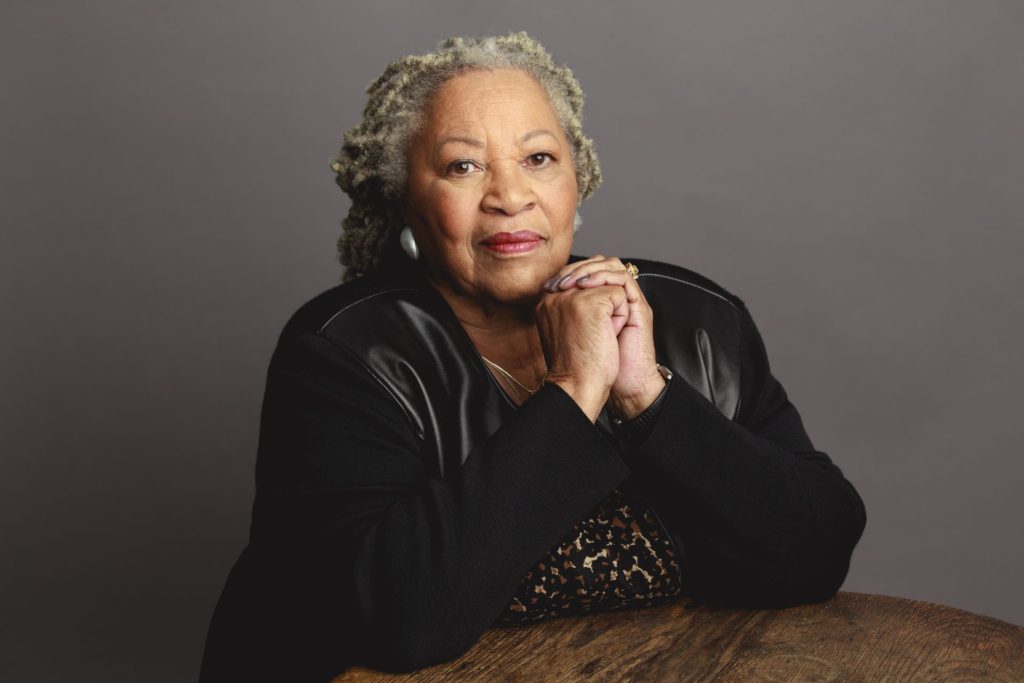
The Pulitzer Prize-winning author passed away Monday after a brief illness.
Toni Morrison taught me to dream.
Famed prizewinning author Toni Morrison died Monday night at the age of 88; although her writing has been part of the collective consciousness of American society for most of my near-42 years, the timeless nature of her work never felt dated.
At this point in our lives, we should be used to seeing those we admire grow old and die, but what brings pause in learning of the death of Morrison is remembering how her words—which are alive and vital as ever in a time where our country is being made “great again”—not only nourished, but enriched the lives of readers.
Note that I did not just include black readers, even though her prose spoke directly to our trials and tribulations throughout time, because her works were accessible by anyone with a thirst for reading, and as such, offered a crystalline window into our lives and our culture…and our pain.
Best known for the 1988 Pulitzer Prize-winning Beloved (1987), her other major works Jazz (1992) and Paradise (1997) led to her being the first black woman to be honored with the Nobel Prize for Literature, proof that our stories had value not just at home, but abroad. Like many of her contemporaries, Morrison served as a lamplighter for our collective culture.
But beyond the many accolades, Morrison’s value as a storyteller exists in the way she used language to evoke deep emotion. Through her words, a pastiche derived from the tales of all who came before us, suffering and striving while never losing the value of love, hope and dignity came to the fore, not only to depict a story, but to comfort us, to let us, the reader, know that through each line of prose, we were not alone; we see and we are seen.
During the course of her near 50-year career, Morrison published 11 novels, five children’s books, a pair of plays and contributed to a number of non-fiction works. In her absence, we are left with a bevy of material to consume, share and enjoy, and therein lies the dream.
Through her words, a pastiche derived from the tales of all who came before us, suffering and striving while never losing the value of love, hope and dignity came to the fore, not only to depict a story, but to comfort us, to let us, the reader, know that through each line of prose, we were not alone; we see and we are seen.
Not only was Morrison a prolific author, during her 19 years as an editor at Random House, she broke a number of influential authors of color, including Angela Davis, Toni Cade Bambara and Gayl Jones. Through her work, she brought not only her words to the world, but the words of others. She created contemporaries, reminding any of us with even an iota of the written gift to do exactly that, write.
Many people will publish elegies on Morrison and her impact both in the literary world and black culture, and it is both fair and just to do so. While we rarely assign such accolades to a person while they’re alive, Toni Morrison was a lioness. She was a generational voice that bridged generations.
Chances are, your mother read The Bluest Eye (1970) years before you stumbled upon Tar Baby (1981) and your child read Love (2012). For us as people of color, that distinction is all-important, as we are so used to our greatest voices burning brightly and briefly. Morrison’s greatest gift to us may have been her longevity.
Reports say Morrison died peacefully after a brief illness, surrounded by friends and family. A lovely and yet rare thing for people of color as we continue to be inundated by scenes of our continual mistreatment in America, the very thing Morrison decried in her novels.
Her ending was certainly on the happier side, seeing the old age few of us are ever afforded. And as her light goes out, it also goes on immemorial, as a new generation picks up her book for the first time and she teaches them also how to dream.
As the world mourns the loss of this truly phenomenal author and woman, we should remember her words, as the beauty of those words segue into eternity:
“At some point in life the world’s beauty becomes enough. You don’t need to photograph, paint, or even remember it. It is enough.”
Hashim R. Hathaway (Shimbo) is the host of the Never Daunted Radio Network, and proud father to NeverDaunted.Net. You can reach him on Twitter @NeverDauntedNet
